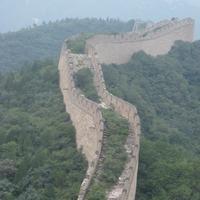13 欢欢喜喜 *过大年
vui vẻ|đón Tết
|お正月祝い
13 Happy* New Year
13 Célébrer la nouvelle année
13 Празднуйте Новый год
13 欢欢喜喜*过大年
欢欢喜喜 * 过大年
楽しく|大晦日を祝う
Happy and joyful
中国 的 春节 * 是 最 隆重 *, 最 热闹 的 节日 。
|||||long trọng||||
|||||盛大な||||
The Chinese Spring Festival* is the most grand*, the most popular festival.
春节 的 第一天 也 叫 大年初一 , 过 春节 也 叫 过年 。
The first day of the Spring Festival is also called New Year's Day. The Spring Festival is also called New Year.
为了 庆祝 春节 , 人们 提前 许多天 就 开始 准备 。
|||||nhiều ngày|||
|||||多くの日|||
To celebrate the Spring Festival, people began to prepare many days in advance.
人们 要 在 自己 家里 大扫除 *, 把 家里 打扫 * 得 干干净净 , 还要 购买 许多 年货 , 也 就是 过 春节 要 吃 和 要 用 的 东西 , 包括 给 大人 孩子 购买 新 衣服 。
||||||||||||||hàng Tết||||||||||||||||||
|||||大掃除|||||||購入する||年末用品||||||||||||||大人 -> 大人||||
People need to clean their house*, clean up their homes*, and buy many new products, that is, things to eat and use during the Spring Festival, including buying new clothes for adults.
中国 人 过年 前要 在 门上 贴 春联 和 “ 门神 *” 和 “ 财神 *”, 表达 * 人们 追求 平安 * 和 富裕 * 的 美好愿望 。
|||||||||Thần cửa||||||||||
|||||||春聯||門神||財神様||||||富裕: 豊かさ||
The Chinese people had to put Spring Festival couplets, “Goddess*” and “God of Wealth*” on the door years ago to express the people’s desire to pursue peace* and prosperity*.
除夕之夜 , 中国 人有 祭祖 * 和 守岁 * 的 习俗 。
đêm giao thừa|||||gác đêm giao thừa||
大晦日の夜|||祖先祭り||年越し||
On the eve of New Year's Eve, the Chinese have the custom of worshipping ancestors* and keeping their age.
全家 要 在 一起 吃 年夜饭 , 也 叫 团圆 * 饭 , 这是 一年 中 全家 最 高兴 的 时刻 。
家族全員|||||年越し料理|||団らん|||||||||
The whole family is going to eat together for New Year's dinner, also called reunion dinner. This is the happiest moment for the entire family during the year.
年夜饭 一定 要 有 饺子 , 鱼 和 年糕 * 之类 的 食物 。
||||||||||thức ăn
年越し料理|||||||年糕|||
There must be food such as dumplings, fish and rice cakes* for dinner.
除夕之夜 的 饺子 是 辞旧迎新 * 的 意思 , 而 “ 鱼 ” 和 “ 余 ” 字 谐音 *, 意思 是 年年有余 , 日子 富足 ,“ 年糕 ” 与 “ 年 高 ” 谐音 *, 意思 是 年 年 升高 , 生活 一年 比 一年 好 。
||||tiễn biệt cũ đón chào mới||||||||hài âm|||năm nào cũng có dư||phú túc|||||||||||||||
||||新年を迎える||||||余: 余り||同音語|||年々余裕||豊かさ|||||同音語||||||||||
The dumplings on New Year's Eve are meant to be old and new*, and the words “fish” and “yu” are synonymous*, meaning that it is more than a year, and the days are rich. “Middle cake” and “Year of the Year” have a homonym*, meaning a year-on-year rise. High, life is better every year.
新年 里 , 老 人们 要 给 孩子 红包 , 称为 “ 压岁钱 ”, 而 晚辈 要 给 长辈 拜年 *, 说些 祝福 的话 。
||||||||||||||||nói vài||
|||||||||お年玉||後輩||||年始の挨拶|||
In the New Year, the old people will give their children a red envelope called “Lucky New Year's money,” and the younger generation will give their elders a year of New Year’s greetings and words of blessing.
中国 民间 有 过年 燃放 烟火 鞭炮 , 舞龙 舞狮 的 习俗 。
||||đốt||||múa sư tử||
||||打ち上げ|花火|爆竹|龍舞|獅子舞||
Chinese folks have the habit of setting off fireworks, firecrackers and dancing lions.
送走 旧岁 *, 人们 开始 走亲访友 , 相互 拜年 , 各种 活动 也 热热闹闹 地 开始 了 , 其中 最 有意思 的 就是 庙会 * 了 。
|năm cũ|||||||||sôi nổi|||||||||hội chùa|
送り出す|旧年|||親戚訪問||新年の挨拶||||賑やかに|||||||||縁日|
Sending away old people*, people began to visit relatives and friends, New Year's greetings, and various activities began. The most interesting one is the temple fair*.
整个 春节 的 喜庆 气氛 * 一直 要 到 正月十五 元宵节 。
|||vui vẻ||||||
|||お祝い|雰囲気|||||元宵節
The festive atmosphere throughout the Spring Festival* has been to the fifteenth lunar month.

